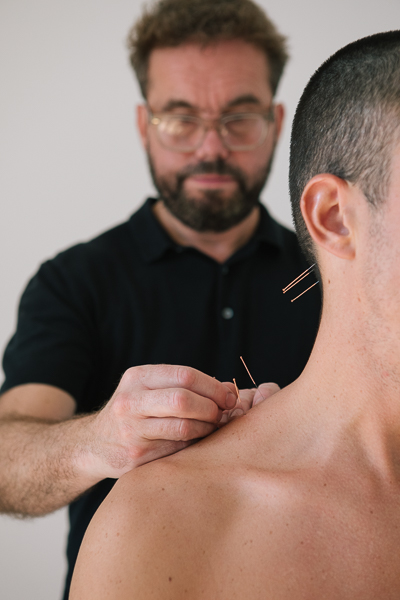FREQUENTLY ASKED QUESTIONS

HOW DOES ACUPUNCTURE WORK?
Acupuncture is rooted in the principles Chinese Medicine, which is approximately 2000 years old. Fundamental to this tradition is the principle that vital energy (known as Qi) flows through the body in pathways known as meridians or channels and along these are specific sites known as acupuncture points. Any sort of imbalance in the body (be it physical or emotional) will be revealed in either a blockage or weakness at some of these points, and acupuncture involves the insertion of needles into these points with the aim of clearing or strengthening the flow of Qi.
DOES ACUPUNCTURE HURT?
Acupuncture needles are significantly finer than those used by a dentist or doctor and as such, acupuncture needles are typically felt to be pain-free. When an acupuncturist either inserts or manipulates the needles, the recipient will experience sensations akin to pulling, spreading or achiness, but it is very rare that such sensations are strong enough to be considered painful.
WHAT SHOULD I WEAR FOR TREATMENT?
It is best to wear loose, comfortable clothing which allows access to the knees in the lower body, and to the elbows in the arms. I consider comfort to be very important to the therapeutic process, and in that vein the temperature of the room is regulated and blankets are provided.
WHAT STYLE OF ACUPUNCTURE DO YOU PRACTICE?
I use a variety of acupuncture styles from Five Element theory, Traditional Chinese Medicine (TCM) and Applied Channel Theory. In my experience it’s important to have many different styles of acupuncture to draw upon as every individual and every case is unique.
HOW LONG IS A SESSION?
A session typically lasts for an hour, but the first session tends to be longer as a number of questions need to be asked and a thorough examination carried out. This first session therefore can last up to 75 minutes.
ARE THERE ANY SIDE EFFECTS TO ACUPUNCTURE?
It is exceptionally rare that patients experience any side effects, but it is possible that a bruise may come up at the site of where a needle has been placed. Equally one might feel quite tired or ‘spaced out’ after a treatment, but this passes quickly. Acupuncture can be considered to be one of the safest medical treatments, either conventional or complementary, on offer.
HOW MANY SESSIONS WILL I NEED?
This is an impossible question to answer but I would expect and hope to see some progress after at least two sessions. From that point onwards, it will be much easier to predict how many sessions are required.
The rule of thumb is often how old the condition is – it is almost always easier to resolve a condition that is new, than one that has been lingering for many years.
IS THERE ANYTHING I NEED TO DO BEFORE A TREATMENT?
I would suggest having something to eat approximately two hours before coming for a treatment, but for that to be nothing too big or heavy. I would also advise against drinking alcohol or coffee prior to treatment as these will have effect your state of mind.
I would also recommend that you try to arrive in as relaxed a state as possible, as it is not ideal to receive acupuncture when in a state of tension.